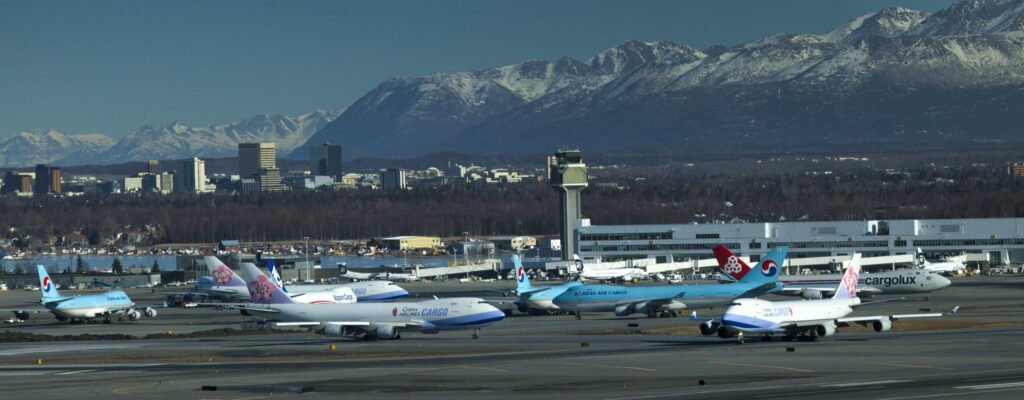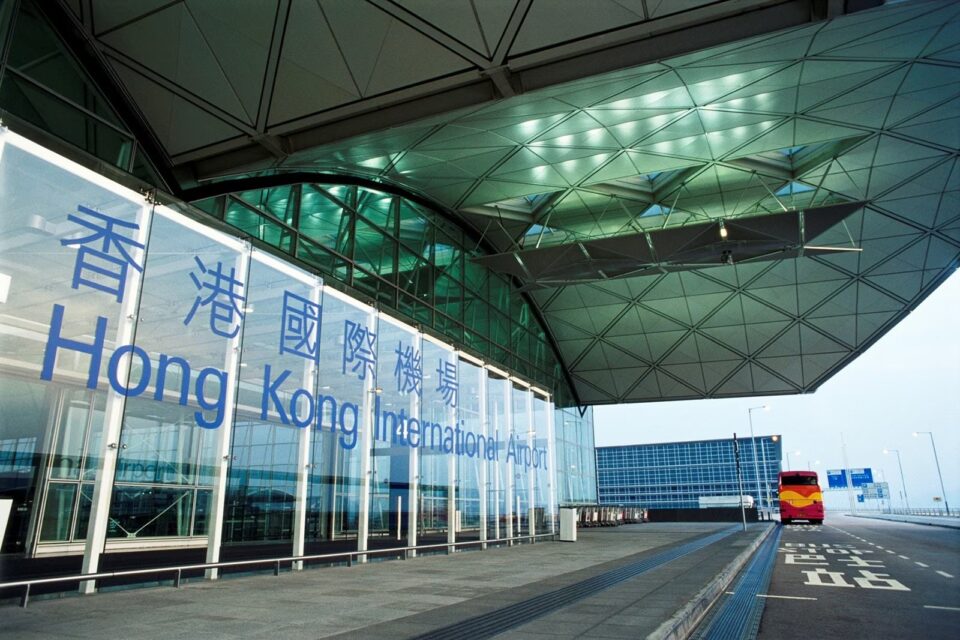A look at the airports that move the most cargo and why, along with some ideas on why demand for air freight around the world is declining. According to Airports Council International (ACI), the busiest airport by air freight is also among the busiest airports by passenger volume. Global air cargo traffic volume has fallen, even if the majority of airports’ rankings remained stable in 2022.
The world’s top aviation freight hub is Hong Kong International.

The busiest aviation freight hub in the world is, unsurprisingly, Hong Kong International Airport. It is well renowned for being a significant Asian air cargo hub with nonstop international flights. However, it is just slightly ahead of Memphis International Airport’s 4,042,679 metric tonnes with 4,199,196 metric tonnes of freight.Three cargo terminals at the Hong Kong International Airport have specialized cold room storage space totaling about 5,000 square meters.
Hong Kong International Airport was without a doubt the appropriate airport when the globe need COVID-19 vaccines that required temperature control.Daily air freight flights continued to run between Hong Kong International Airport and London’s Heathrow International Airport despite British Airways’ limitations on air passenger travel to Hong Kong only resuming in December 2022.Of course, it should come as no surprise that Memphis International Airport is ranked second on the top ten list given that it serves as Federal Express’s (FedEx’s) home plate and is shown in the above image.
For 2022, the airport handled 146,330 domestic and foreign aircraft operations. Many of FedEx’s packages pass via the Memphis hub since FedEx was founded with the goal of building a company that could ship packages from one location to another.
Relationships and geography are crucial to air cargo volume

Anchorage International Airport in Alaska came in third. The great circle route connecting Asia and North America passes through Anchorage, which is less than ten hours’ flying time from 95% of the industrialized globe. In 2022, more than 3.4 metric tonnes of air freight were handled.
According to Craig Campbell, the airport’s director, “ANC is committed to continuing to serve as one of the busiest cargo airports in the world by upholding a healthy connection with our cooperating stakeholders around our airport. In order to help ANC meet the expectations of the aviation sector, responsible growth and development are taking place.
As the third busiest airport in the world, we play a significant role in the global economy.Even Asian Freight, Logistics and Supply Chain named Anchorage International Airport the Best Airport in North America for 2022. In response, Campbell replied;
The services that ANC offers, from our constantly open runways to the cleanliness of our facilities, are valued by our worldwide customers in addition to our great location, which is 9.5 hours distant from 90% of the industrial world. We also understand that our commercial partners, such the able ground handlers and fuel operators, ensure that all of the carriers can maintain punctuality despite their hectic schedules. This prize honors those businesses and people who contribute to the year-round operation of ANC.
Governor of Alaska Mike Dunleavy added his congratulations, saying,
“The spark in Alaska’s economic engine is Anchorage International Airport. It is a top-notch passenger and cargo airport that welcomes everyone who enters its gates and is in a special location in the world.
Why has air freight globally declined?
It’s important to reiterate that air freight has decreased globally. According to ACI, the drop in air cargo traffic is a result of “the ongoing geopolitical tensions and disruptions to global trade and supply chains,” like Russia’s War on Ukraine. IATA, a different international aviation agency, also contributed to the decline by blaming inflation in part.
IATA Director General Willie Walsh stated in a statement in February,
“Air cargo performance decreased from the extraordinary heights of 2021 due to considerable political and economic uncertainty. That decreased the demand for air cargo to 1.6% below levels from 2019 (pre-pandemic). It’s anticipated that the ongoing efforts by important governments to combat inflation by slowing down economies would cause cargo volumes to fall by another 5.6% in 2023 compared to 2019.
However, the globe still needs a robust air cargo network to handle the demand for everything from animals to computer accessories, flowers, food, toys, and bizarre antiques. Azerbaijan’s Heydar Aliyev International Airport (GYD) and Houston’s George Bush Intercontinental Airport (IAH) are connected via Silk Way West Airlines’ new route, which connects the two cities, as well as the Bogata-Dallas Ft. Worth route offered by Qatar Airways Cargo. So not all is bad in the world of air cargo.
In conclusion
Hopefully, attendees of IATA’s World Cargo Symposium, titled “Age of Change: Moving Air Cargo Forward,” will keep in mind that excellent logistics, connections, and worldwide demand keep air cargo on the move and on the upward. As the world grows increasingly interconnected, new pathways will keep appearing.





